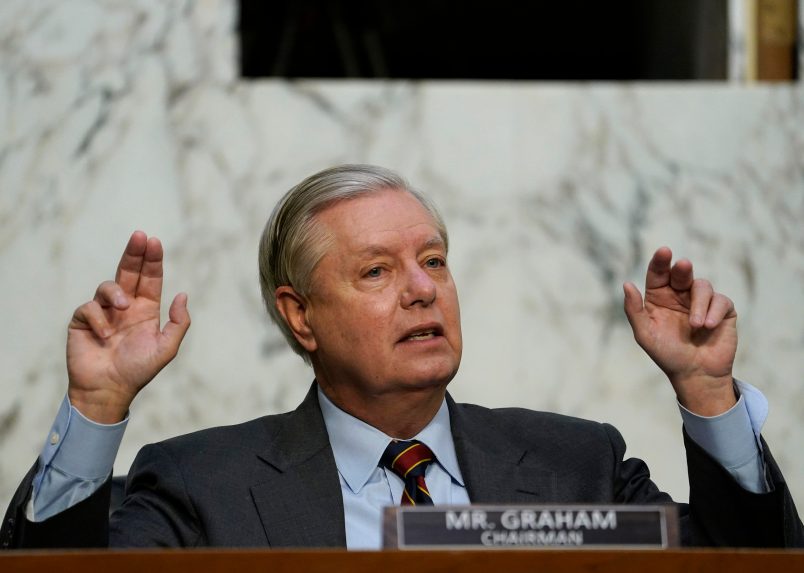Sen. Lindsey Graham (R-SC) on Wednesday launched another attempt to avoid testifying before a special grand jury in Fulton County, Georgia investigating efforts by former President Trump and his allies to overturn the election results in the battleground state.
Graham filed a brief in federal court on Wednesday, days after the 11th Circuit Court of Appeals ruled that the Trump ally does not have to comply with the subpoena from the grand jury until his attorneys and Fulton County district attorney Fani Willis outline arguments about what questions he can be asked in light of constitutional protections he has as a sitting member of Congress.
In his filing, Graham maintained his argument that two calls he made to Georgia secretary of state Brad Raffensperger (R) after the 2020 presidential election — an interest of the grand jury’s investigation — are simply part of his job and are protected by the Constitution’s Speech or Debate Clause. In her subpoena to Graham, Willis cited at least one phone call where Graham allegedly attempted to pressure Raffensperger, who defied Trump’s demands to subvert the election results, into discarding some legally cast ballots.
“The Constitution guarantees that a Senator ‘shall not be questioned’ about his protected ‘Speech or Debate’ — and yet the District Attorney insists that Senator Graham must submit to questioning to ascertain whether he can be questioned or is immune from questioning,” Graham’s lawyers said in the filing. “That makes no sense.”
Graham’s lawyers then argued that Willis “should bear the burden of identifying the questions she wants to ask or, at a minimum, the specific topics she wants to cover.”
“If there is debate about whether those topics are permissible, she must offer evidence that those topics are not protected by the Clause,” Graham’s lawyers said. “To hold otherwise is to allow the District Attorney to evade the Speech or Debate Clause by requesting amorphous testimony and then, like a moving target, springing new or elaborated questions or issues on the Senator; the District Attorney, after all, is in the best position to know what she wants to ask (assuming this is not a disorganized fishing expedition).”
“For that reason, if anyone suggests a further line of inquiry, Senator Graham will address it in his Supplemental Reply Brief,” Graham’s lawyers continued.
Earlier this month, U.S. District Judge Leigh Martin May in Atlanta rejected Graham’s motion to quash the Fulton County subpoena. May ruled that Willis demonstrated “extraordinary circumstances and a special need for Senator Graham’s testimony on issues relating to alleged attempts to influence or disrupt the lawful administration of Georgia’s 2020 elections.”
Graham’s lawyers moved to appeal May’s ruling. On Sunday, the 11th Circuit Court of Appeals delayed Graham’s testimony and instructed Willis to consider whether the subpoena should be partially quashed due to the Speech or Debate Clause, an argument that Graham’s lawyers pushed to shield him from having to testify as a sitting member of Congress. Willis has until Monday to respond.



